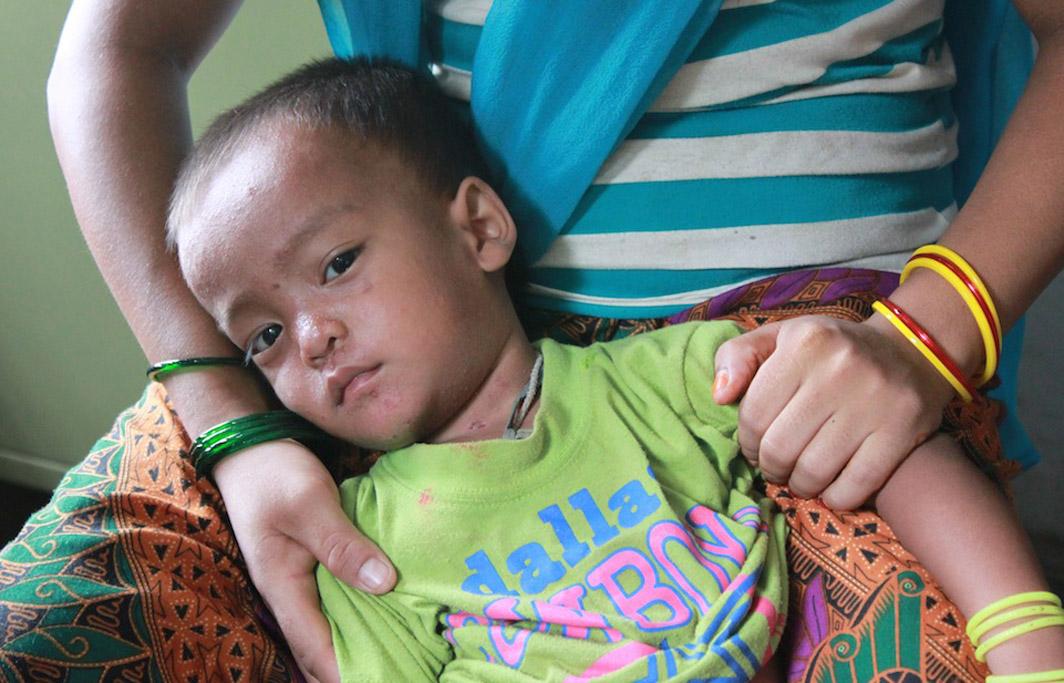Political instability threatens Nepal’s health care program
A sick boy at a sub health post in Dang district, Nepal.
KATHMANDU, Nepal — Healthcare providers, advocates and academics have told me during my travels in Nepal these past two weeks that one of the biggest challenges to improving the country’s healthcare system is the nation’s political instability.
Nepal is in the process of trying to draft a new constitution and create a new government in the aftermath of a 10-year armed conflict that pitted Maoist insurgents against the state. The conflict ended in 2006 when the Maoists agreed to give up their arms. Nepal’s unpopular monarchy was soon thereafter abolished.
It has been five years since the end of the civil war, but the country still has a barely functioning government. A deadline to draft a new constitution has been delayed twice since 2008, and it looks unlikely that the current deadline of August 31 will be met.
Some political analysts fear that if this deadline is again missed, there will be even more instability in the country.
“In a situation like this, people might even be happy if someone takes control, if a sort of benign dictator emerges," Lokraj Baral, a political science professor who heads the Nepal Center for Contemporary Studies, told AFP.
The constitution is being held up due to a number of issues including a disagreement over the integration of former Maoist combatants into Nepal’s army.
Nepal’s prime minister has threatened to resign by Sunday if there is not more progress made on the peace process. Prime Minister Jhala Nath Khanal said he will step down if there is not agreement made on the new constitution and the integration of former Maoist combatants.
The political situation affects Nepal’s healthcare system in a number of ways. First, the frequent turn over of ministers creates a situation where little progress can be made because much time is devoted to convincing each new minister of a particular program or approach, Bidhan Acharya, an associate professor in the department of population studies at Tribhuvan University, told GlobalPost.
The political system also exerts great influence on the health sector as some politicians put people from their own party, whether the most qualified or not, to fill top positions.
There is a strong feeling of frustration with the government in Nepal, and critics argue that the politicians are so busy fighting among themselves they have little time to work on the nation’s development.
Follow Hanna’s trip to Nepal on Twitter: @Hanna_India
